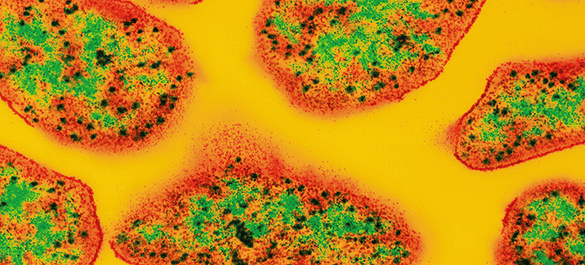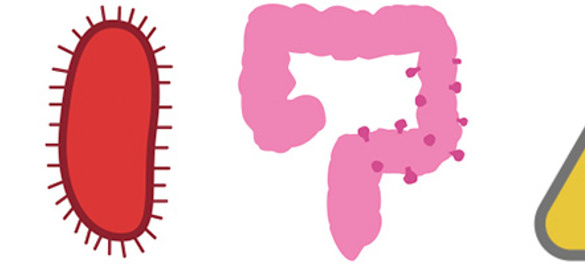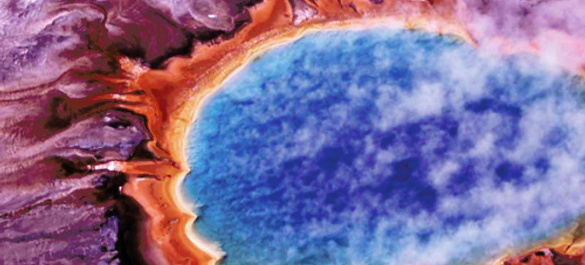
What are Archaea?
What are Archaea?
Archaea are a group of micro-organisms that are similar to, but evolutionarily distinct from bacteria. Like bacteria they are single celled organisms which lack a membrane bound nucleus, but they differ in a number of fundamental traits, such as the composition of their cell walls and the functions which happen inside their cells.
Many archaea have been found in the most extreme environments on earth, from boiling hot springs to ice in the Artic Ocean and at high pressure or salt concentrations. They’re hardy organisms and it’s thought that this is due to their tough cell wall. Despite being one of the most abundant life forms scientists are yet to find an example of an archaea acting as a pathogen.
Image: Cold-loving archaea. Coloured transmission electron micrograph of a section through the archaeon Methanococcoides burtonii. Dr M. Rohde, GBF/Science Photo Library.


